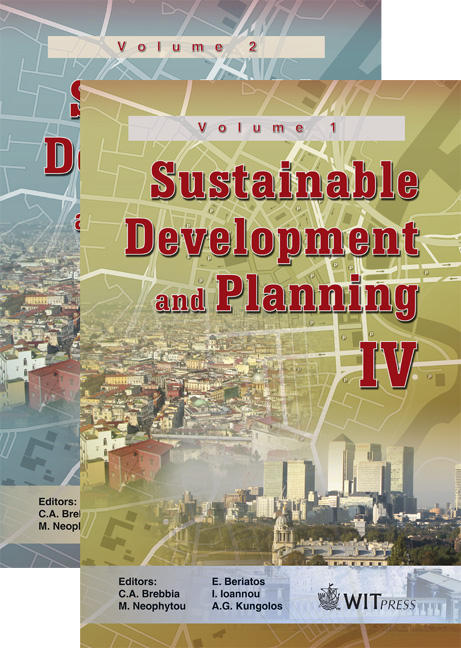Sustainable Flexible Transport Services: A Solution Against Social Exclusion
Price
Free (open access)
Transaction
Volume
120
Pages
12
Page Range
187 - 198
Published
2009
Size
1,041 kb
Paper DOI
10.2495/SDP090181
Copyright
WIT Press
Author(s)
D. Ramazzotti & A. Lois
Abstract
Studies demonstrated that inadequate transport services may create barriers and limit individual and group participation in the normal range of activities. Availability of sustainable transport services can potentially play a very important role in influencing many factors that are enveloped by the concept of social exclusion; in most circumstances inclusion means participation in processes and activities and participation strongly depends on the physical access to facilities. The right to mobility must be guarantee to mobility-impaired people (children, the elderly and the disabled) even in low demand areas and in the presence of a fragmented public transport service. The Public Transport Authorities (PTAs) can and have to influence and encourage the diffusion of IT based flexible transport systems, being able to link and optimize demand and the offer of transport. Keywords: social and cultural issue, sustainable, flexible transport service. 1 Introduction The right to mobility is a social need and Public Transport Authorities (PTAs) have the mandatory mission to grant it: they are key in the transport chain, because they are able to link demand (citizens and policy-makers) and the offer of transport (operators); furthermore they are skilled in planning, organizing, awarding and controlling services, eventually creating synergies through a webbased platform, hosted and maintained by the PTA itself, where a specific
Keywords
social and cultural issue, sustainable, flexible transport service.





